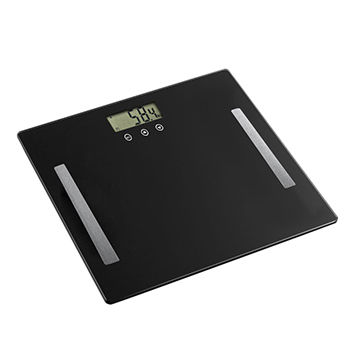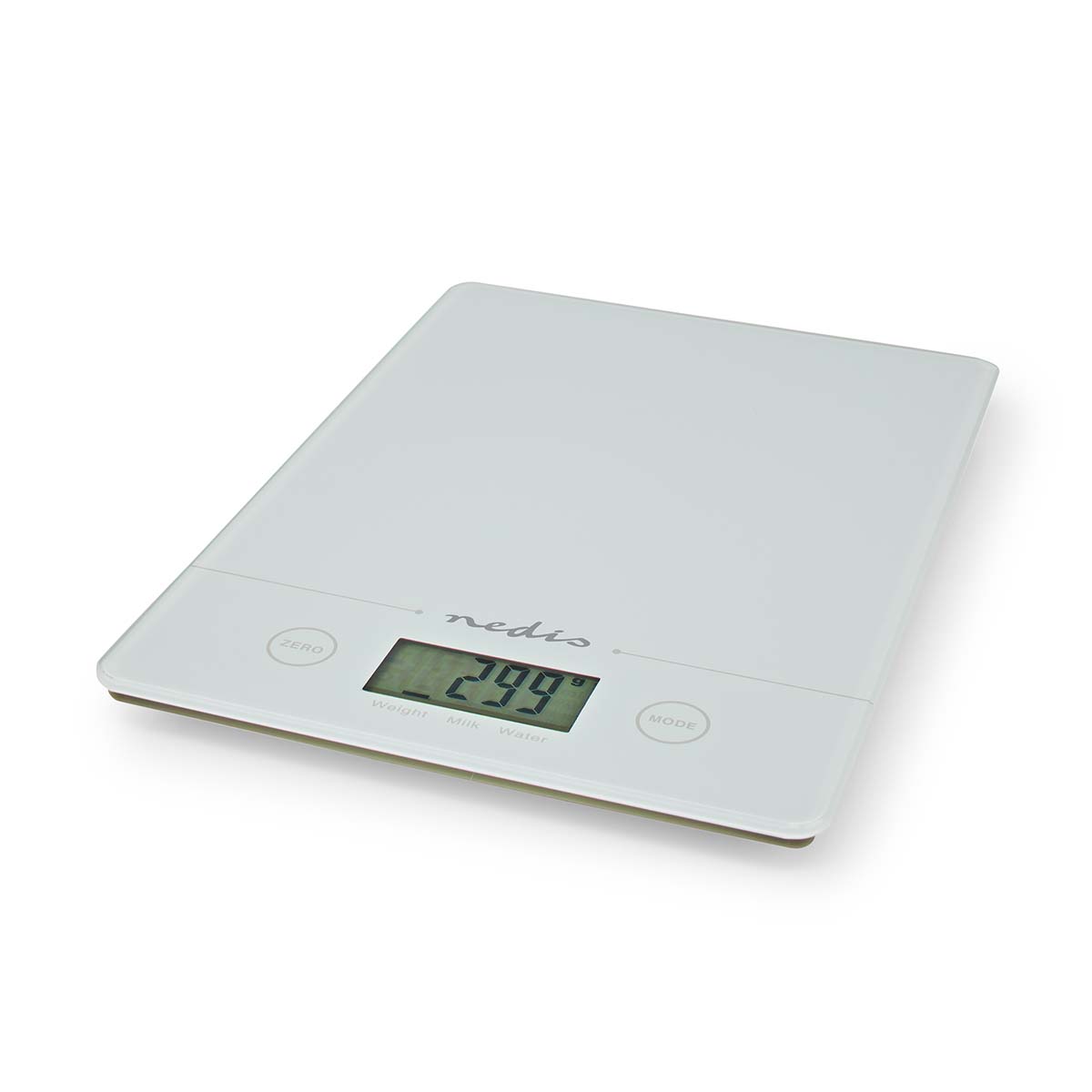Have you ever found yourself in the middle of a baking session, only to discover your kitchen scale is out of juice? Frustrating, isn’t it?
Knowing the right battery size for your kitchen scale can save you from this common hiccup. Imagine the ease and peace of mind when your culinary adventures are never interrupted by a dead scale. We’ll explore everything you need to know about kitchen scale battery sizes, ensuring you’re always prepared and your scale is always ready to assist.
Stick around to discover tips that could change how you organize your kitchen essentials. Your cooking experiences are about to get a whole lot smoother!
Choosing The Right Battery Size
Choosing the right battery size for your kitchen scale is important. It ensures your scale functions smoothly and reliably. A well-fitted battery improves accuracy and extends the life of your scale. Understanding different battery sizes can help you make an informed choice.
Common Sizes For Kitchen Scales
Kitchen scales usually use AAA or AA batteries. These sizes are widely available in stores. Some scales might require CR2032 button cells. These are smaller and more compact. Always check your scale’s manual for specific battery recommendations.
Factors Affecting Battery Size Selection
Consider the scale’s design and size. Larger scales might need more power. Smaller scales often use button cells. Usage frequency is another factor. Frequent use may require more robust batteries. Consider battery cost and availability too. Choose batteries that are easy to find.

Credit: www.buyabattery.co.uk
Types Of Batteries For Kitchen Scales
Kitchen scales are essential tools for many home chefs. To keep them running, understanding the types of batteries used is crucial. This knowledge ensures your kitchen scale stays functional and accurate. Different kitchen scales require specific battery types. Choosing the right one can affect performance and longevity.
Alkaline Vs. Lithium Batteries
Alkaline batteries are the common choice for kitchen scales. They are affordable and widely available. Their lifespan is decent for moderate usage. Lithium batteries, on the other hand, last longer. They perform well in colder environments. Although pricier, they provide consistent power over time.
Rechargeable Options
Rechargeable batteries offer a sustainable choice for kitchen scales. They reduce waste and can be reused multiple times. Though upfront costs are higher, they save money in the long run. They work well for frequent kitchen scale users. Ensure your scale is compatible with rechargeable options before purchasing.
Battery Life Considerations
Choosing the right battery size for your kitchen scale impacts its lifespan and performance. Smaller batteries might need frequent replacements, while larger ones can last longer, reducing interruptions. Make sure to balance convenience and cost when selecting the appropriate battery size for optimal kitchen scale use.
When you’re in the kitchen, juggling multiple recipes, the last thing you want is for your kitchen scale to die mid-measurement. Understanding battery life considerations can save you from this frustration. Batteries are the lifeline of your kitchen scale, and knowing a bit about them can make your cooking experience smoother and more efficient.Average Lifespan Of Different Battery Types
Different kitchen scales use different batteries, and each type has its own lifespan. Alkaline batteries, commonly found in many scales, can last anywhere from six months to a year, depending on usage. Lithium batteries, although more expensive, often last longer—up to two years—with regular use.Button cell batteries, like those used in compact scales, might only last a few months. Keep track of your usage habits to better predict when replacements might be needed. Consider how often you use your scale and the type of battery it requires to gauge its longevity.Tips To Extend Battery Life
You can extend the life of your kitchen scale batteries with a few simple habits. Always turn off your scale when it’s not in use, even if it has an auto-off function. Removing batteries if you’re not using the scale for an extended period can also prevent power drain.Keep your scale in a cool, dry place, as high humidity can reduce battery efficiency. Regularly clean the battery compartment to ensure good contact and prevent corrosion. Have you ever thought about how much power your scale might waste by being left on all day?Taking these small steps can save you both time and money. After all, a little foresight today can prevent a kitchen disaster tomorrow. How will you change your battery habits?
Credit: www.globalsources.com
Troubleshooting Battery Issues
Kitchen scales are essential tools for precise cooking. Battery issues can disrupt their functionality. Identifying and resolving these problems ensures your scale performs well. This section provides guidance on troubleshooting battery-related issues.
Signs Of Battery Problems
Is your scale acting up? Check for erratic readings. Does it turn off unexpectedly? These could be signs of a weak battery. A dim display often signals low power. Batteries might need attention if your scale is slow to respond.
Steps To Replace Batteries
Replacing batteries in your kitchen scale is straightforward. First, locate the battery compartment. It’s usually at the back or bottom. Open it using a screwdriver if necessary. Remove the old batteries carefully. Note the battery size and type.
Insert fresh batteries. Ensure correct polarity alignment. Close the compartment securely. Turn the scale on to test its functionality. If the display is bright and responsive, the issue is resolved.
Environmental Impact Of Batteries
Batteries power many of our household gadgets, including kitchen scales. While they’re essential for functionality, they also come with environmental costs. Improper disposal can harm ecosystems, and manufacturing processes can contribute to pollution. Let’s dive into how you can minimize the environmental impact of batteries used in kitchen scales.
Disposal And Recycling Tips
Have you ever wondered what happens to old batteries? Tossing them in the trash might seem convenient, but it can lead to environmental hazards. Instead, look for local recycling centers that accept batteries. Many stores offer drop-off bins where you can safely dispose of them.
Consider setting up a dedicated container at home for used batteries. Once it’s full, take it to a recycling facility. This simple habit can significantly reduce landfill waste.
Check if your community has special collection days for hazardous materials. Participating in these events ensures that batteries are handled responsibly, keeping toxins out of soil and water.
Eco-friendly Battery Choices
Thinking about making greener choices? Opt for rechargeable batteries. They last longer and reduce the need for constant replacements. While the initial cost is higher, you’ll save money over time.
Consider batteries made from recycled materials. They tend to have a smaller carbon footprint and help reduce waste. Brands are increasingly offering eco-friendly options, making it easier for you to find sustainable choices.
Explore alternatives like solar-powered kitchen scales. Though less common, they eliminate battery use entirely. It’s a small step, but it can lead to a more sustainable lifestyle.
How often do you think about the environmental impact of your kitchen gadgets? Making conscious choices with batteries can be a part of your green journey. These small changes matter.

Credit: nedis.com
Innovations In Kitchen Scale Batteries
Discover the advancements in kitchen scale batteries with compact sizes that offer efficient power. Smaller batteries fit seamlessly into modern kitchen scales, ensuring precise weight measurements. Enhanced battery designs contribute to longer usage and better performance in everyday cooking tasks.
Innovations in kitchen scale batteries are reshaping how we measure ingredients. Gone are the days of constantly replacing dead batteries, leaving you stranded in the middle of a recipe. Today’s kitchen scales are equipped with smarter, longer-lasting battery solutions that not only make cooking easier but also more efficient. But what makes these batteries stand out? Let’s delve into the exciting world of smart scale batteries and discover where technology is headed.Smart Scale Battery Features
Modern kitchen scales come with batteries that do more than just power the device. Some scales now offer rechargeable options, eliminating the need for disposable batteries. This is not only eco-friendly but also cost-effective.Imagine a kitchen scale that alerts you when the battery is low, ensuring you’re never caught off guard. Some smart scales even integrate with apps to send notifications to your phone. With these features, you can focus on the joy of cooking without worrying about your scale dying at a crucial moment.Future Trends In Battery Technology
The future of kitchen scale batteries is bright and full of potential. Think of solar-powered kitchen scales that harness energy from your kitchen lights. This sustainable option could mean saying goodbye to battery replacements altogether.Another trend to watch is the integration of wireless charging capabilities. Imagine placing your scale on a charging pad overnight, similar to your smartphone. These technologies are not far off and could soon become the norm in your kitchen.Are you ready for a kitchen scale that powers itself, making your cooking experience seamless? The innovations in battery technology are paving the way for smarter kitchens, ensuring you always have the power you need when you need it. As these trends evolve, your kitchen scale might just become the most reliable tool in your culinary arsenal.Frequently Asked Questions
What Battery Size Fits Most Kitchen Scales?
Most kitchen scales use AA or AAA batteries. Check your scale’s manual for specific requirements.
How Do I Replace Kitchen Scale Batteries?
Remove the battery cover, take out old batteries, insert new ones. Ensure correct polarity.
Why Is My Kitchen Scale Not Turning On?
Dead batteries may be the issue. Replace them and ensure proper installation.
How Often Should I Change Scale Batteries?
Change batteries when performance drops or display dims. Typically every 6-12 months.
Can I Use Rechargeable Batteries In Kitchen Scales?
Yes, rechargeable batteries work well in kitchen scales. Ensure they are fully charged.
Conclusion
Choosing the right kitchen scale battery size ensures accuracy in measurements. A small investment in the correct battery size saves time. It makes cooking and baking easier. Always check your kitchen scale for battery type. Replacement is simple and affordable.
This keeps your kitchen scale functioning well. Remember, a reliable kitchen scale means better recipes. Maintain your kitchen scale by choosing the right battery size. Your cooking adventures will be more enjoyable and stress-free. Keep it simple and efficient with the right tools.
Happy cooking and baking!
